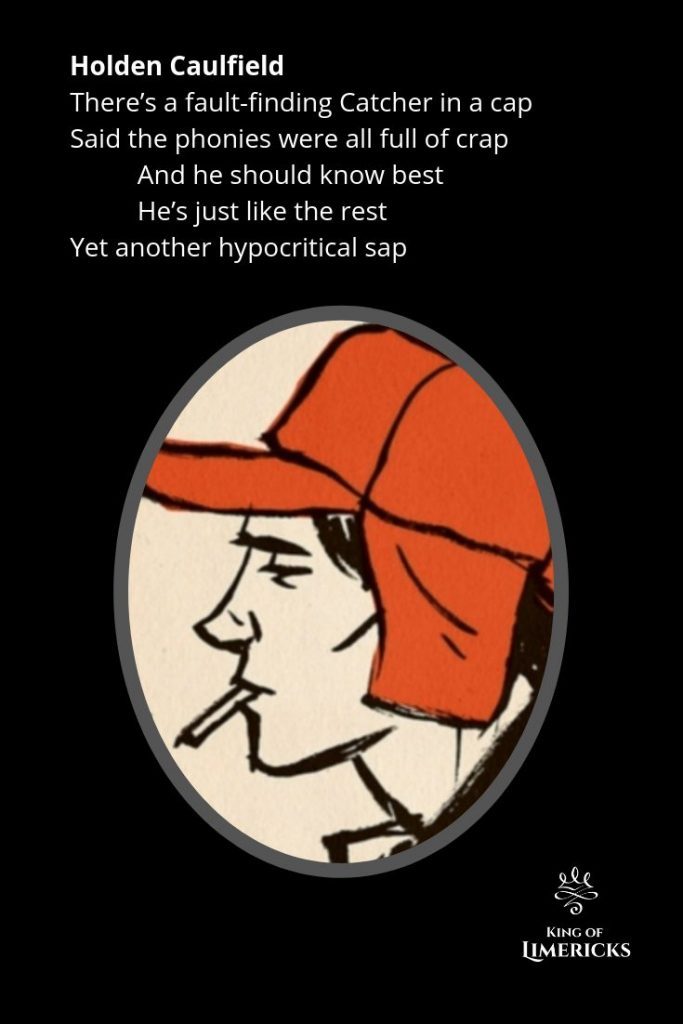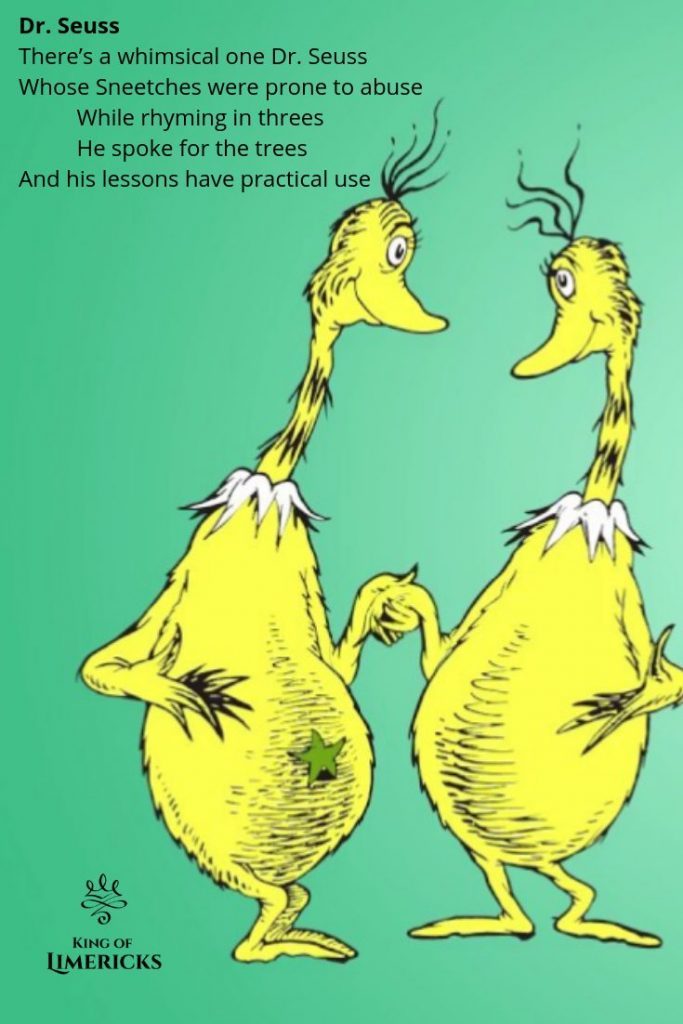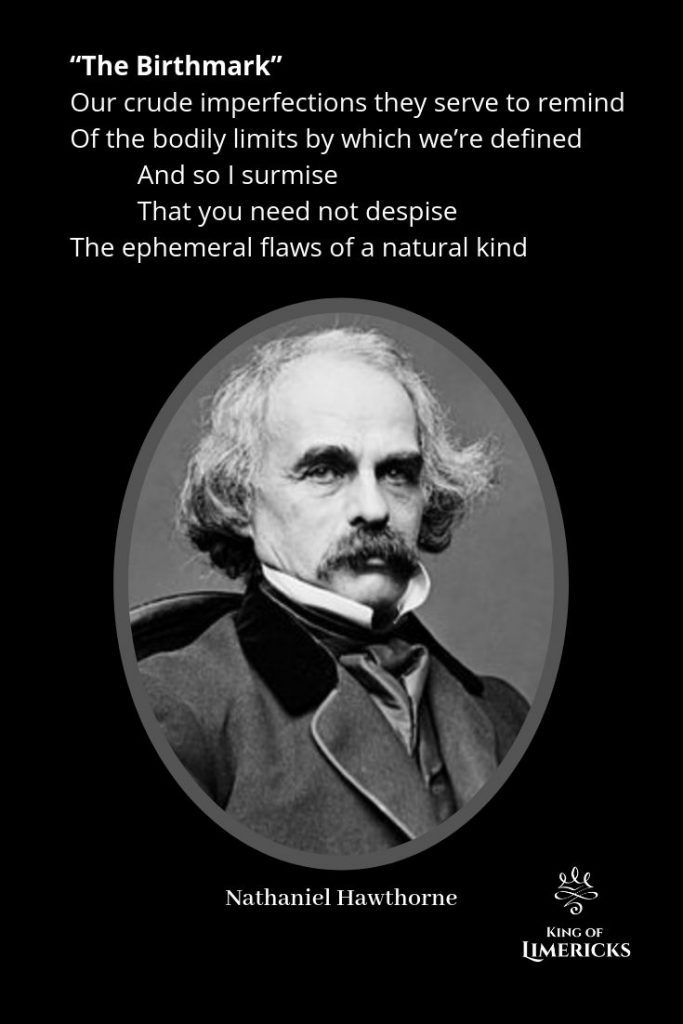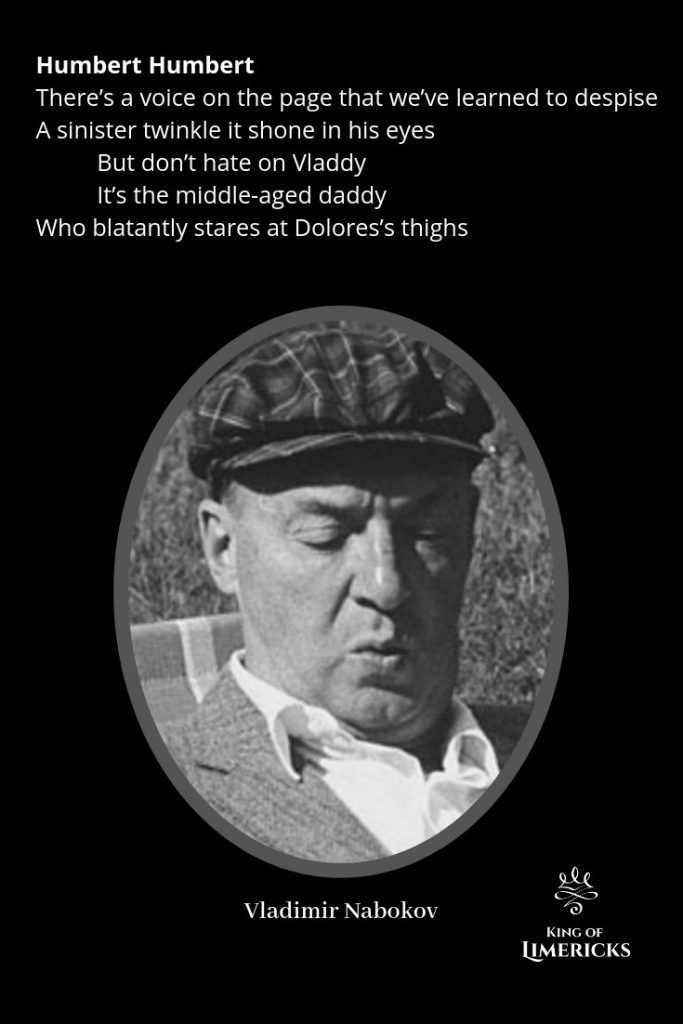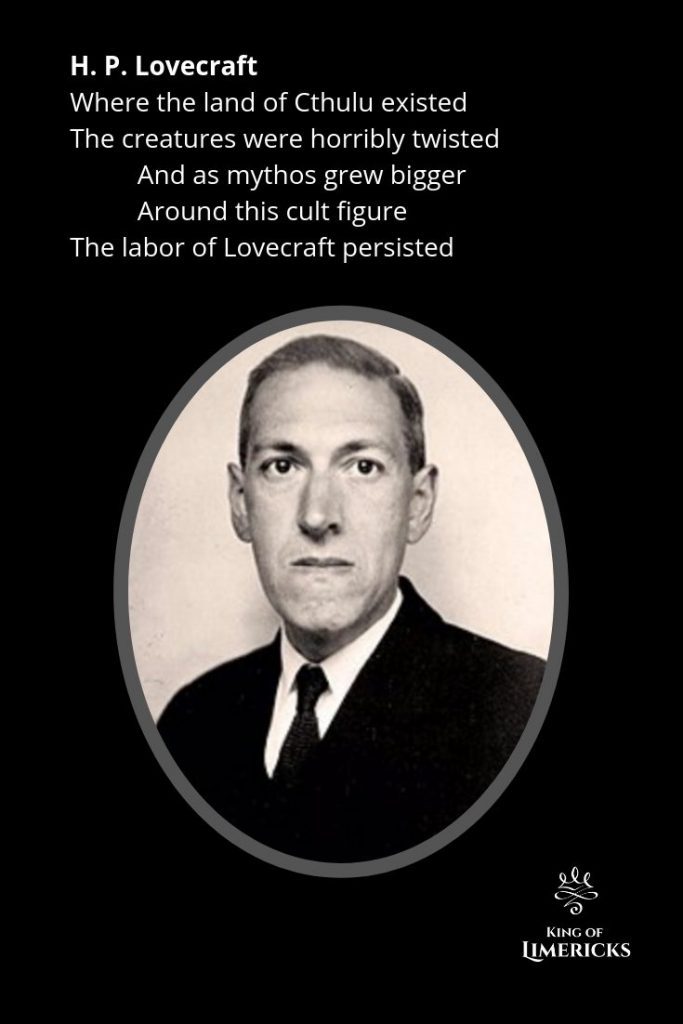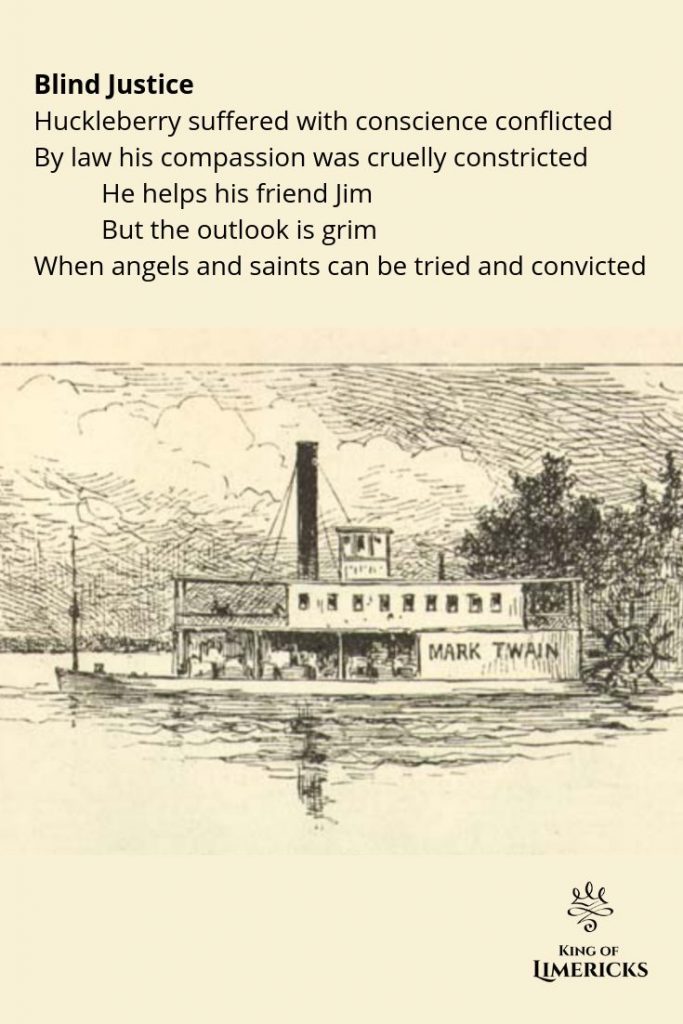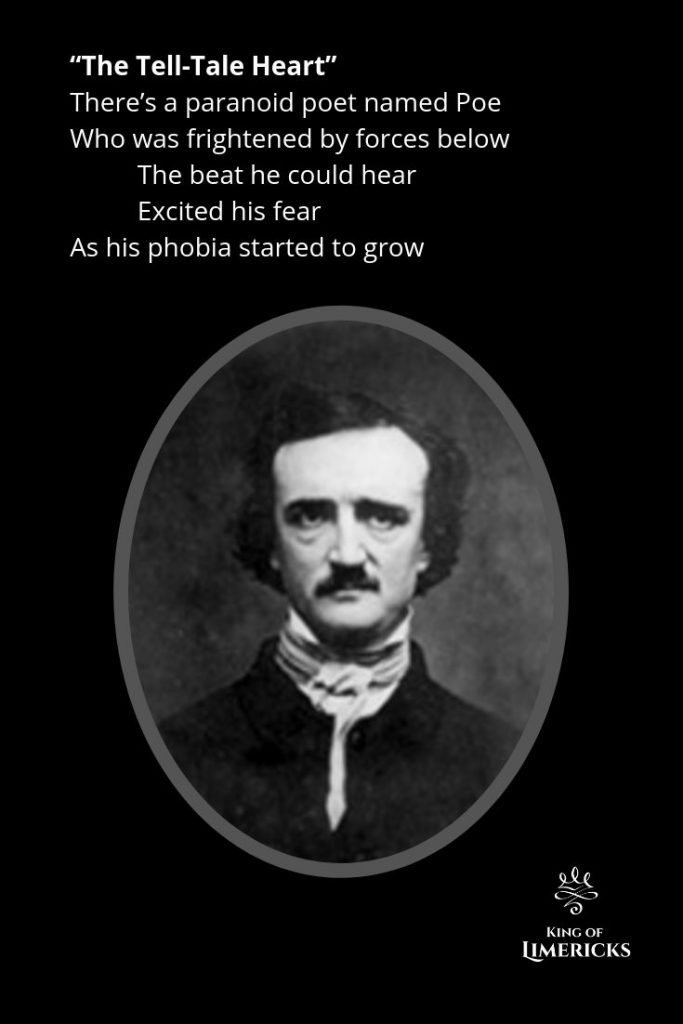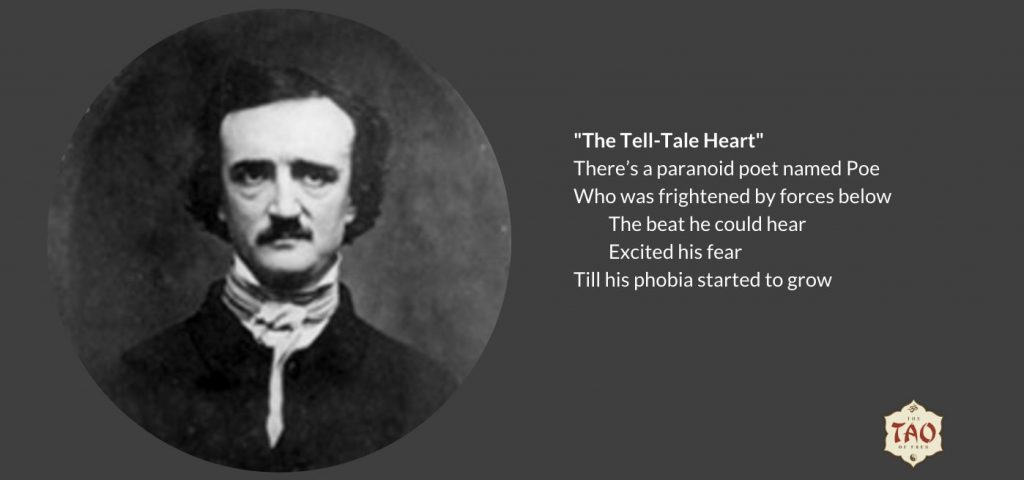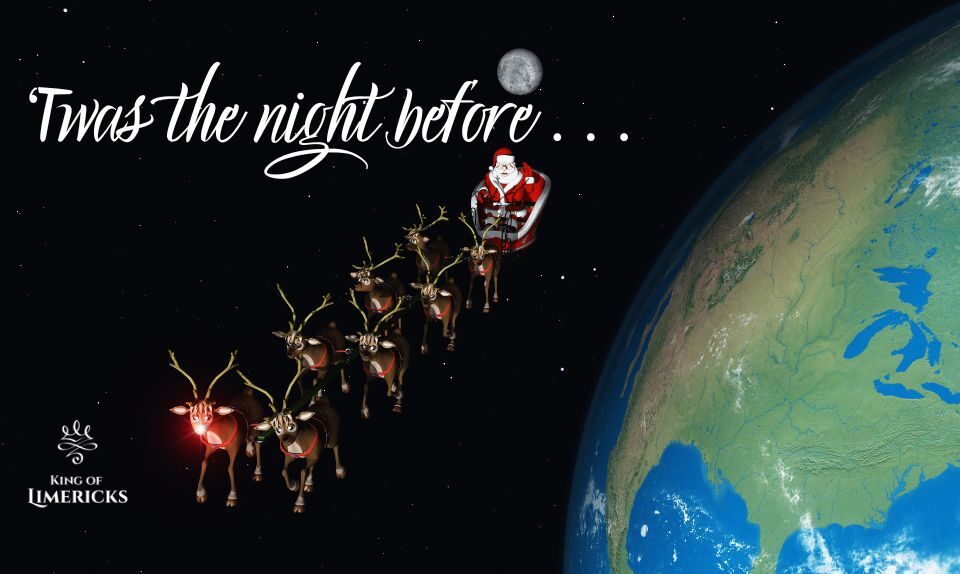
Om word bound: The meaning of Om
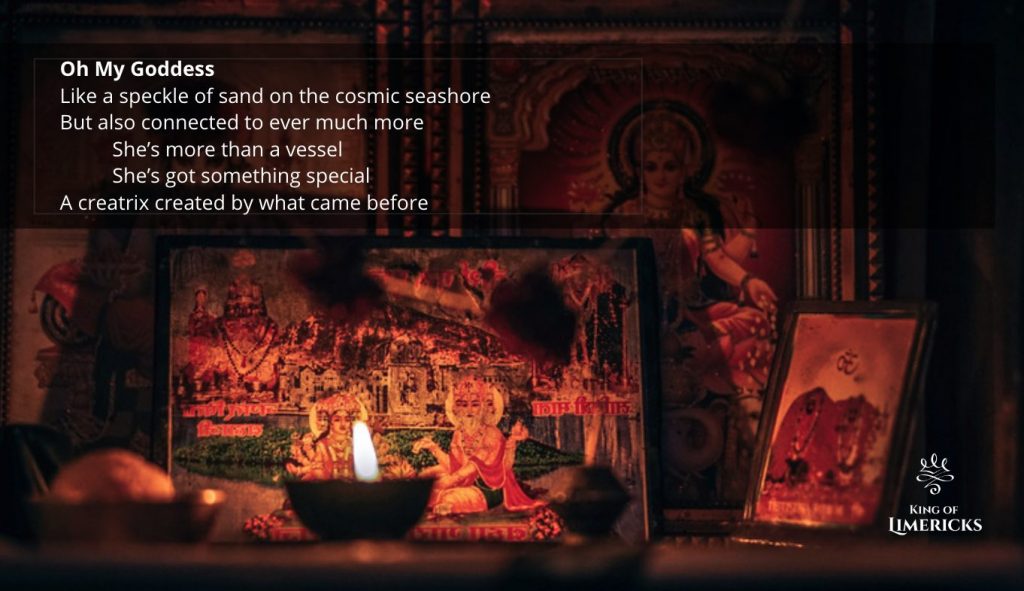
Heavenly Limericks about Goddesses
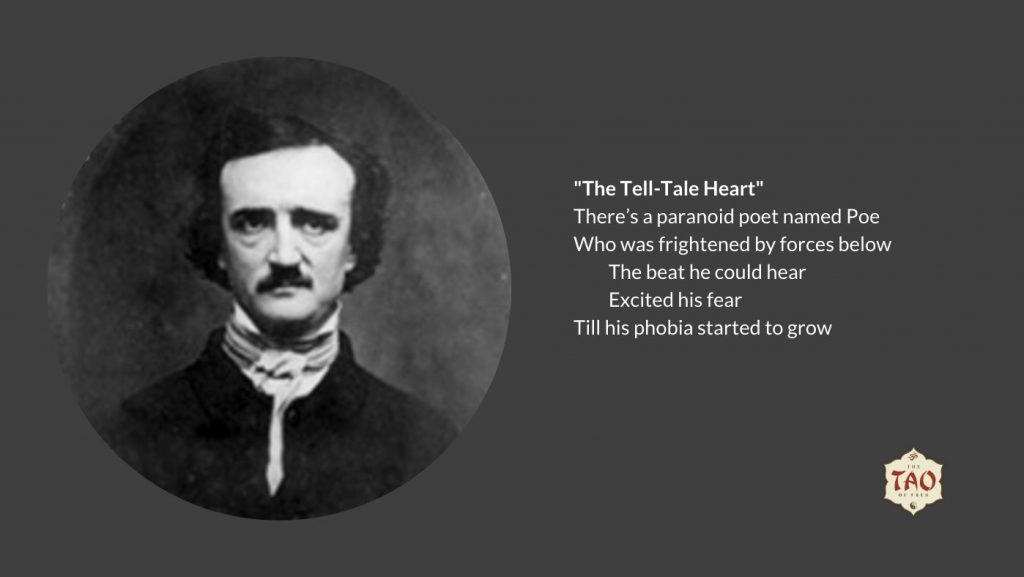
Men of letters, lovers of limericks, fashioners of fine phrase, oh how I adore thee. As I contemplate the likes of Hawthorne and Nabokov, my limerick-scratching fingers tremble before me. I must ask myself whether I’m worthy.
But worthy or not, a rhymer’s gotta rhyme. So here’s a little tribute to some of America’s greatest poets and novelists.
Perhaps the greatest as well as the most American—he was born on the 4th of July—of great American novelists was Nathaniel Hawthorne. To this day, you’d be hard-pressed to find a book more psychologically astute than The Scarlet Letter. And his allegorical short stories never fail to capture my imagination.
The Scarlet Letter
In Boston’s a harlot named Hester
Whose broken heart tended to fester
The mark of disgrace
Brought pink to her face
Like the shame of a guilty molester
“The Birthmark”
Our crude imperfections they serve to remind
Of the bodily limits by which we’re defined
And so I surmise
That you need not despise
The ephemeral flaws of a natural kind
Another pillar of the American literary canon, Edgar Allan Poe has scared my children to sleep on more Halloween nights than I should admit. You’d have to be crazy not to love Poe. And if you were crazy, you’d probably just love him all the more.
“The Tell-Tale Heart”
There’s a paranoid poet named Poe
Who was frightened by forces below
The beat he could hear
Excited his fear
Till his phobia started to grow
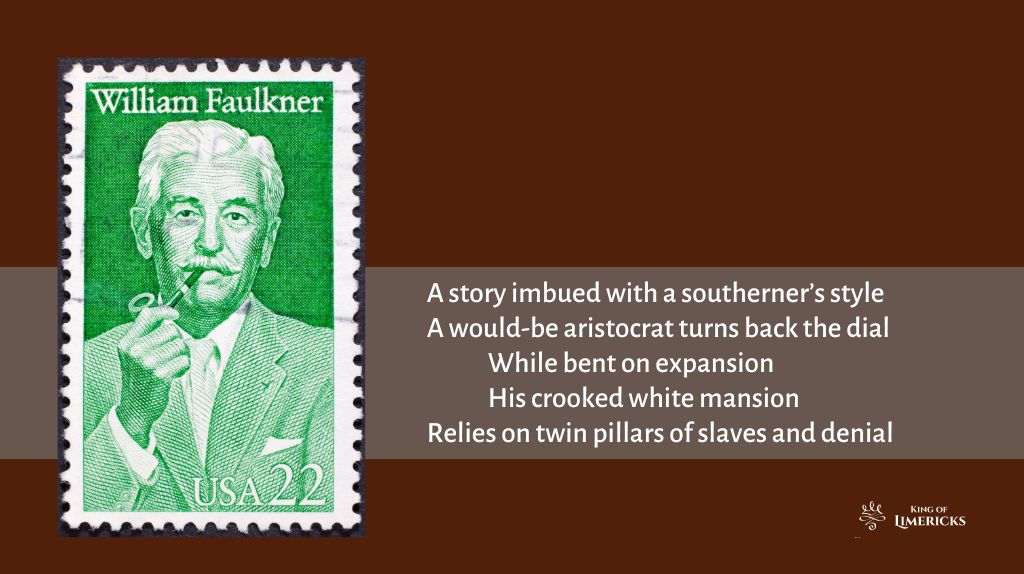
If you asked Hemingway, he’d be quick to tell you that Mark Twain‘s Huckleberry Finn was the original Great American Novel. A children’s story on its surface, the book presents a moral quagmire between doing what’s right and doing what’s legal, demanding some serious consideration.
Blind Justice
Huckleberry suffered with conscience conflicted
By law his compassion was cruelly constricted
He helps his friend Jim
But the outlook is grim
When angels and saints can be tried and convicted
In the footsteps of A. E. Poe, the genre of horror truly blossomed under the florid prose and terrifying imagination of H. P. Lovecraft.
H. P. Lovecraft
Where the land of Cthulu existed
The creatures were horribly twisted
And as mythos grew bigger
Around this cult figure
The labor of Lovecraft persisted
He wrote with a purpose. His prose was crisp and his dialog sharp. You’ll never find an unnecessary word on a page of Hemingway.
Papa Hemingway
Old Hem had a way of depicting a tourist
A truncated manner that veered on modernist
In how to fight bulls
Or why the bell tolls
‘Twas always important for him to be Ernest
One of California’s finest, John Steinbeck gave a voice to the Oakies, the downtrodden, and the migrant workers headed west. Novels like Grapes of Wrath portray the plight of the working man, as does Cannery Row, from which a particularly pithy passage inspired the following limerick.
Steinbeckian Sapience
The traits of success aren’t the ones you expect
For kindness and sharing deserve more respect
But meanness and greed
Produce riches indeed
As that which we prize comes from what we reject

Raising eyebrows and causing an uproar, Vladimir Nabokov‘s Lolita was censored, acclaimed and made into a film, twice. His unreliable narrator inspires contempt and disgust, but also sympathy, which only magnifies the reader’s sense of unease.
Humbert Humbert
There’s a voice on the page that we’ve learned to despise
A sinister twinkle it shone in his eyes
But don’t hate on Vladdy
It’s the middle-aged daddy
Who blatantly stares at Dolores’s thighs
One of those rare books that is required high school reading and also widely censored, many believed The Catcher in the Rye to be part of communist plot when it came it in 1951. In fact, J. D. Salinger had no affiliations with the communist party, although he did practice yoga and hinduism for many years.
Holden Caulfield
There’s a fault-finding Catcher in a cap
Said the phonies were all full of crap
And he should know best
He’s just like the rest
Yet another hypocritical sap
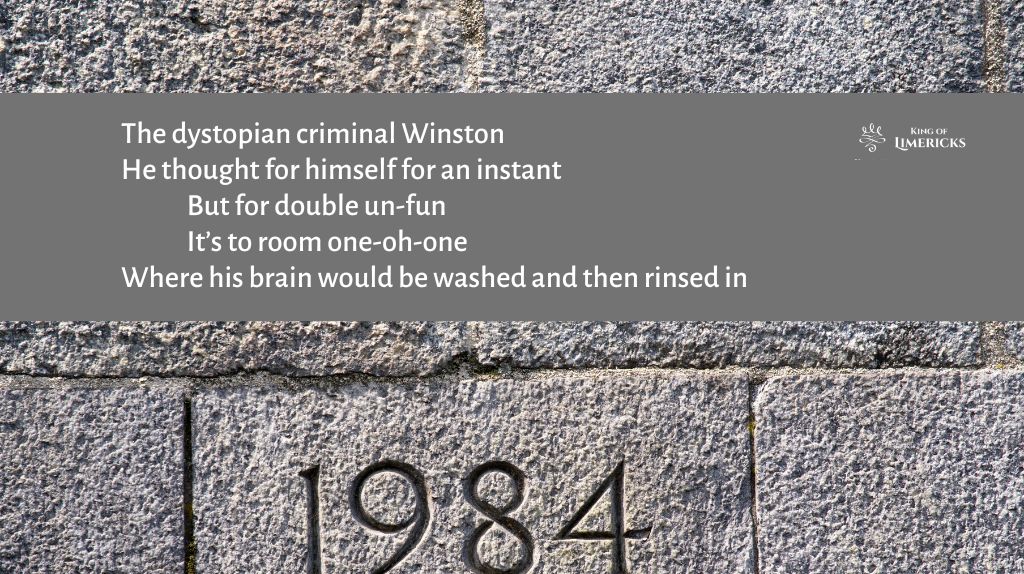
Whoever claims that excessive drug use and literary output don’t mix must not be familiar with the Beat Generation and the prolific writings of William S. Burroughs, Ken Kesey and Jack Kerouac.
William S. Burroughs
There’s a paperback addict named Bill
His habit was one that could kill
With senses so skewed
He lunched in the nude
And deprived of his junk he got ill
Ken Kesey
There’s a Prankster from over the Nest
Who barely avoided arrest
Remember Ken Kesey?
He drove the kids crazy
His Kool-aid was put to the test
Fans of Kurt Vonnegut will remember a recurring character who shows up in multiple novels. An accomplished author in his own right, Mr. Trout has a number of unpopular science fiction books under his belt. In fact, Vonnegut based the character on a real-life colleague, Theodore Sturgeon.
Theodore Sturgeon
There’s a character figure they call Kilgore Trout
Remembered in fiction beyond any doubt
This writer from Ilium
Exposed to Beryllium
His Kurteous colleague would call the fish out
Last, but certainly not least, a voice of inspiration to anyone who’s ever read to a child or scribbled a hundred lines of anapest, I must tip my catless hat to the illustrious Dr. Seuss.
Dr. Seuss
There’s a whimsical one Dr. Seuss
Whose Sneetches were prone to abuse
While rhyming in threes
He spoke for the trees
And his lessons have practical use
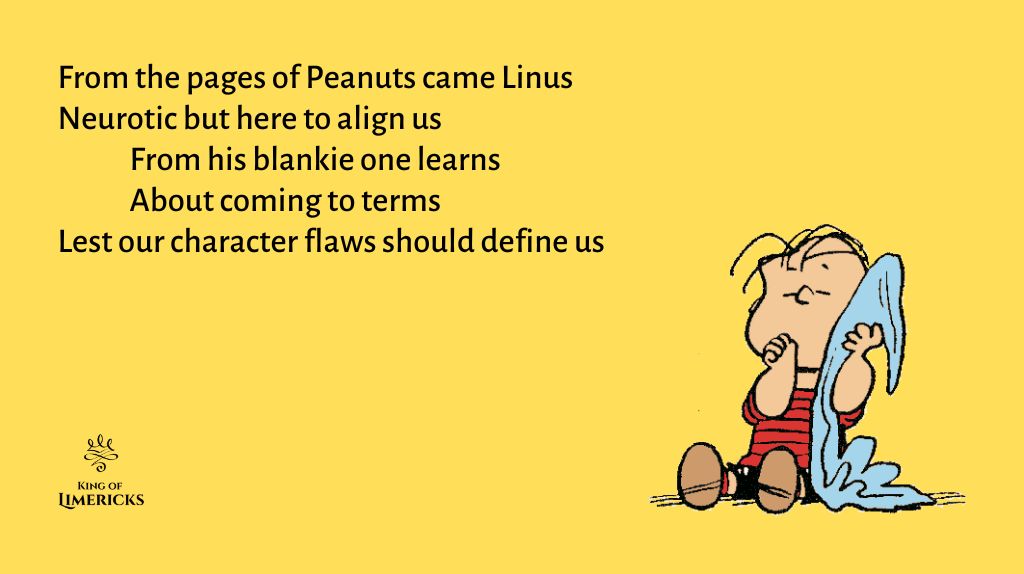
Further Reading
If you liked these limericks about American Literature, you’ll be sure to enjoy:
- Limericks about Moby Dick
- Limericks about James Joyce
- Limericks about Fairy Tales
- 8 Common questions about limericks
